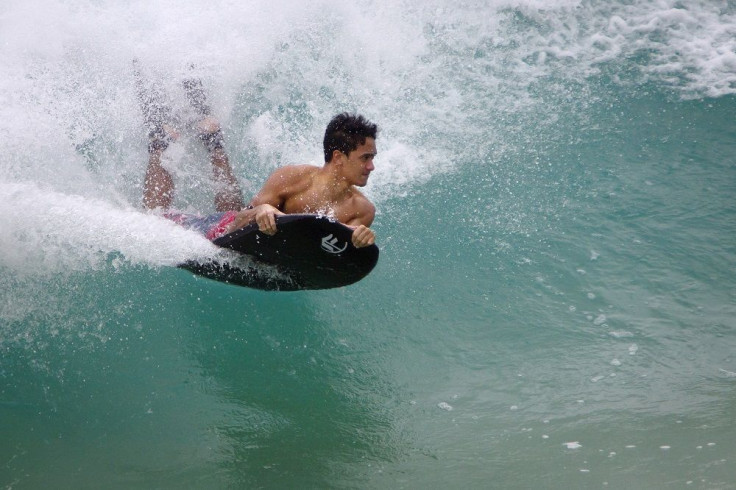UK Research Needs Surfer Behinds For Study About Antibiotic-Resistant Bacteria

Scientists from the University of Exeter Medical School in UK are studying the effects of antibiotic-resistant bacteria from polluted seawater that was tainted by human sewage. To do that, the researchers are seeking surfers and bodyboarders willing to undergo rectal swabs thrice a month. Non-surfers who would serve as members of the control group are also needed as volunteers.
The study, titled “”Beach Bums,” is a joint project between the university and the group Surfers Against Sewage, or SAS. It needs 150 surfers and bodyboarders who were chosen as subjects of the research because most of them swallow seawater as they attempt to catch a wave, reports CNET.
“We’ve already shown that this water may contain antibiotic-resistant bacteria, but we have no idea how this might affect the microbes that live in out guts, or how it could impact upon health,” said Anne Leonard, who is part of the study and a biological sciences doctorate student at Exeter’s European Centre for Environment and Human Health. Leonard estimates that surfers swallow about 170 millilitres of seawater per session, or 10 times the amount of seawater that sea swimmers ingest, according to SAS.
She said the volunteers must be residents of England, Wales or Northern Ireland. Those interested could register at david@sas.org.uk. The volunteers won’t need to bare their beach butts to the researchers since they would be provided with a kit to collect their rectal swabs. They are also required to fill up a short questionnaire.
The increase in antibiotic-resistant bacteria, which has reached alarming levels in many part of the world, according to the World Health Organisation, or WHO, make treatment of common infections more difficult. The WHO points out that the tracking of antibacterial resistance is not coordinated or harmonised. It also noted the gaps of data on bacteria that are of major public health importance.
According to SAS’s Safer Seas Service, there are about 400 separate pollution events across England and Wales since the start of 2015’s bathing season on May 15. SAS issued free, real-time warning to beachgoers about these events. A UK government review has called on global pharmaceutical firms to create a 1.3-billion-pound innovation fund to finance research on new antibiotics.
In the US, President Barack Obama signed an executive order in 2014 that created the Task Force for Combating Antibiotic-Resistant Bacteria in March 2015. The task force is mandated to prepare a five-year plan to study and battle the new bacteria.
To contact the writer, email: vittoriohernandez@yahoo.com





















